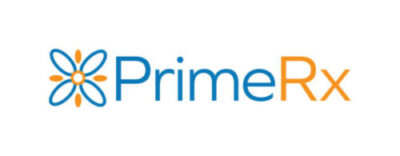With shrinking insurance reimbursements and higher drug prices chipping away at margins, independent community pharmacies rely (in part) on drug rebates to make up the difference.
I would never suggest that you stop accepting rebates from your primary suppliers, but two recent big pharma stories raise questions about rebates, including this doozy: when is a rebate not a rebate? It’s an interesting question.
Long history of rebates
Rebates have been part of the U.S. economic landscape for well over 100 years. Prior to 1887, as America was expanding westward, interstate rail carriers encouraged farmers to locate along their lines by offering them secret pricing, well below their published rates, to transport their production east.
At first, competition was so vigorous, and the rebates so steep, that some railways put themselves out of business by selling their services below cost. This led to what the big railways had wanted from the beginning: monopolies.
The Interstate Commerce Act of 1887 was created to end the monopolization of the rails. One of its central tenets made it illegal to for a carrier to charge more or less than its published rate.
Is it a rebate… or a gift… or?
According to the IRS, rebates that lower the cost of a product or reward a purchaser for spending at least a benchmark amount are not taxable as income. When the “rebate” doesn’t do either, it’s not a rebate at all, it’s a gift. Gifts are taxable as income.
And then there are those cases when payments that are called rebates are actually kickbacks, and that leads us to our first story.
Justice Department files false claim civil suit
According to a suit filed on December 21st, the Justice Department claims that one of the largest providers of pharmaceuticals and pharmacy consulting services to nursing homes in the US requested and received tens of millions of dollars in kickbacks from a major pharmaceuticals manufacturer from 1998-2008 in exchange for purchasing and recommending a specific drug.
The defendant’s pharmacists reviewed nursing home charts each month and made recommendations to physicians. The government claims they boasted of its influence with physicians and solicited kickbacks from the manufacturer, which it received in several ways, including increased rebate levels.
The current suit, filed under the whistleblower provisions of the False Claims Act, comes on the heels of a 2012 settlement in which the manufacturer paid $1.5 billion for their part in the scheme to the United States and numerous individual states.
While this suit illustrates what can go wrong with rebates on a very large scale, there is also the problem of what happens when rebates go away.
Hospitals react to shifting of major chemotherapy drugs to specialty distributors
News that a major manufacturer has moved all of its cancer infusion drugs, including two essential therapies, to the specialty drug distribution channel has hospitals upset over cost increases.
Because specialty distributors do not have rebate programs, hospitals will lose access to two significant rebate mechanisms they enjoy with their primary distributors:
- Rebates they routinely receive for purchasing these specific drugs from their regular distributor
- Volume rebates based on the sum of all expenditures with that distributor
Estimates of increased cost range from $200,000 to $4 million per hospital.
The manufacturer says they have made the change to ensure the highest level of quality control. That may be a tough argument for hospitals to rebut, but they area definitely feeling the pinch.
The full story is on clicnicaloncology.com
While neither of these stories impacts independent community pharmacies directly, and I certainly am not suggesting in any way that distributor rebates are either illegal or unethical, they do raise some questions you might want to consider.
- How dependent am I on a system that could vanish like a puff of smoke?
- When distributors send me rebates, do they expect something from me or are they just encouraging me to buy more from them?
- If there were no rebates, would prices go up or down?
No rebates, just low prices
As the marketplace where independent pharmacies can complement their primary distributor with specific money-saving purchases from competing distributors and even other pharmacies (where permitted by law), PrimeRx MARKET provides a place for you to find low drug prices without having to guess at what the rebate might be.

